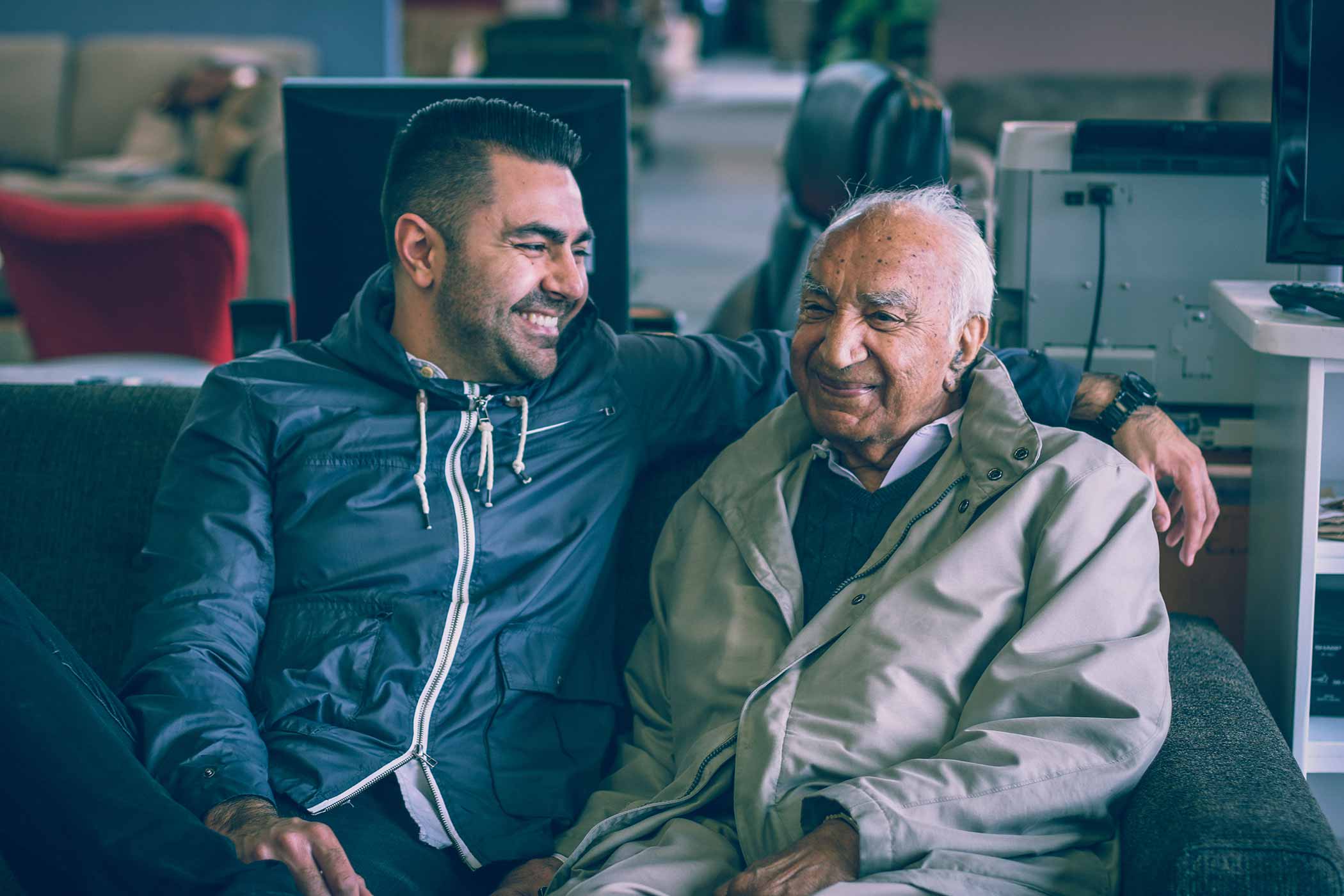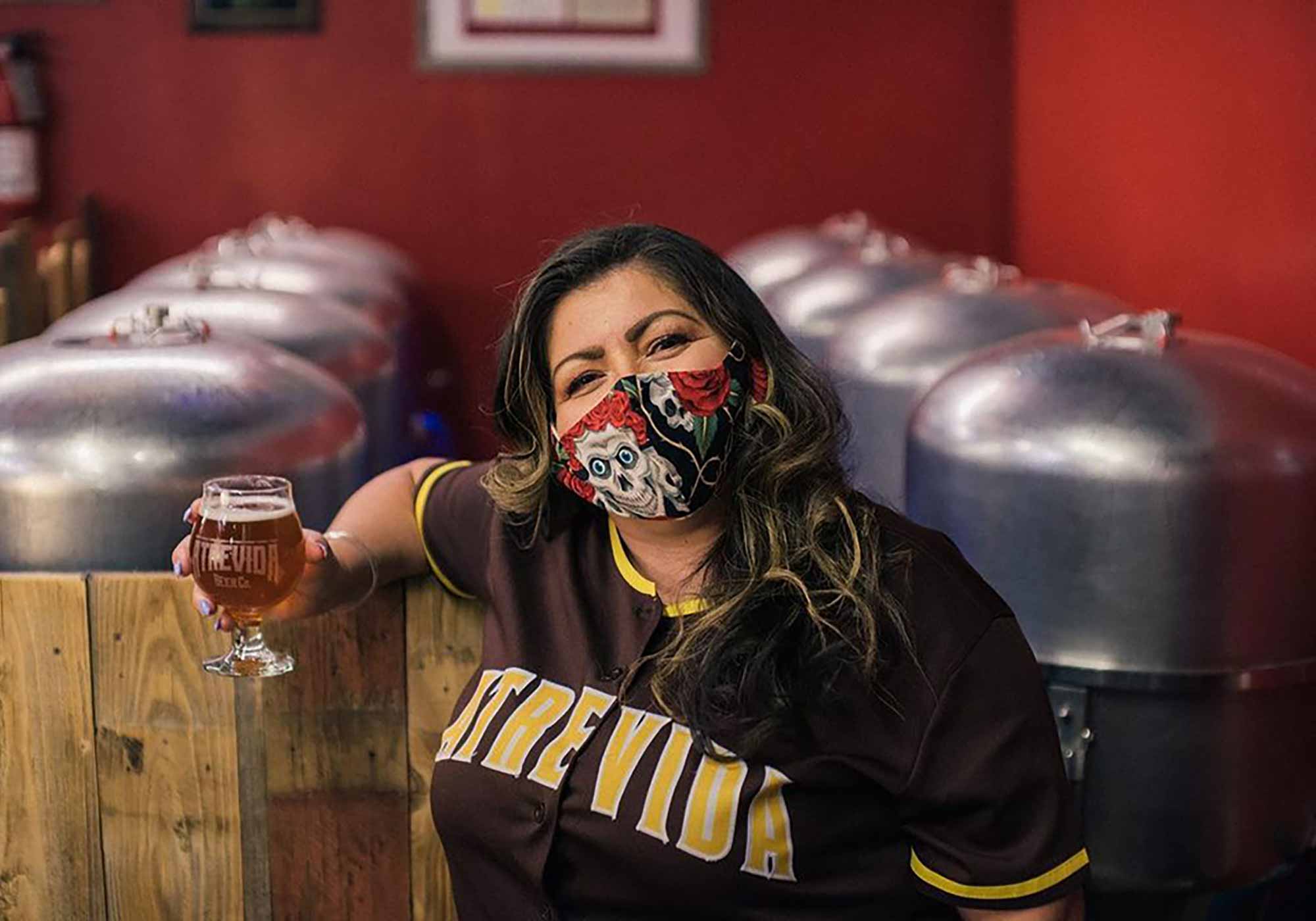Shop
From Couches to Craft Beer: A New Generation of South Asian Business Owners Brewing Beyond Borders
A new generation of craft brewery owners.
Nearly one hundred years ago, Tej Sandhu’s grandparents immigrated to British Columbia (BC), Canada, from a small village in India called Dhada. A natural salesman, Chanan Sandhu sold everything from jeans to pantyhose to TVs, eventually winning a Panasonic contest for the most TVs sold door-to-door out of any salesman in Canada. As a prize, the electronics company sent him a Cadillac.
“This was a poor immigrant kid who all of a sudden had a Caddy,” says Sandhu, whose grandfather went on to open twenty-two furniture and electronics stores called Merit Furniture across BC. “He used those stores to bring more people over from our village,” says Sandhu. “He realized it would make a sustainable chain if he brought more people over from the village and helped them get a job at his store, bring their family here, clothe them, feed them, house them, and start life in Canada. Then, they would start sending money back to the village too.”
It became a huge community of over 1,000 people that he brought over to make a better life for themselves and their families. Today, Sandhu carries on the legacy of his grandfather by fostering an entirely different type of community.
One focused on craft beer.
Sandhu, a second generation Punjabi, opened MERIT Brewing (a nod to his grandfather’s furniture store) in Hamilton, Ontario, Canada, in 2017. Here Sandhu carries the family torch by providing a place not only for the folks of Hamilton, but for the South Asian community as well.
Similarly, 477 miles east in Chicago, IL, Azadi Brewing started with an innovative idea: to use beer as a way to share authentic Indian flavors.
Born in Mumbai, Azadi co-founder Bhavik Modi immigrated to the United States but frequently traveled back to India for work. There, he was amazed how brewers incorporated local ingredients into beer.
So he decided to introduce the American craft beer world to Indian concepts, teaming up with his best friend and Madtree Brewer Ray (aka “Gator”) Schrand to bring the brand to life.
Today, Azadi makes beers like Kadak, a Mumbai chai stout that pays homage to “the fuel that powers India,” says Modi, who worked with a tea seller in India to procure a 100-year-old recipe for chai spice.
Or Gir, an IPA inspired by the Kesar mango, a vibrant orange fruit native to India.
Both Sandhu and Modi represent an incredibly small, but mighty, contingent of South Asian-owned breweries cropping up in North America.
These breweries and several more succeed beyond borders, leveraging beer as a vehicle to pay homage to their culture. Simultaneously, they are introducing North Americans to new fruits, spices, and flavors along with traditions and customs.
And now more than ever we need breweries like MERIT and Azadi to push the craft beer industry beyond its comfortable confines.
The Importance of Brewing Beyond Borders
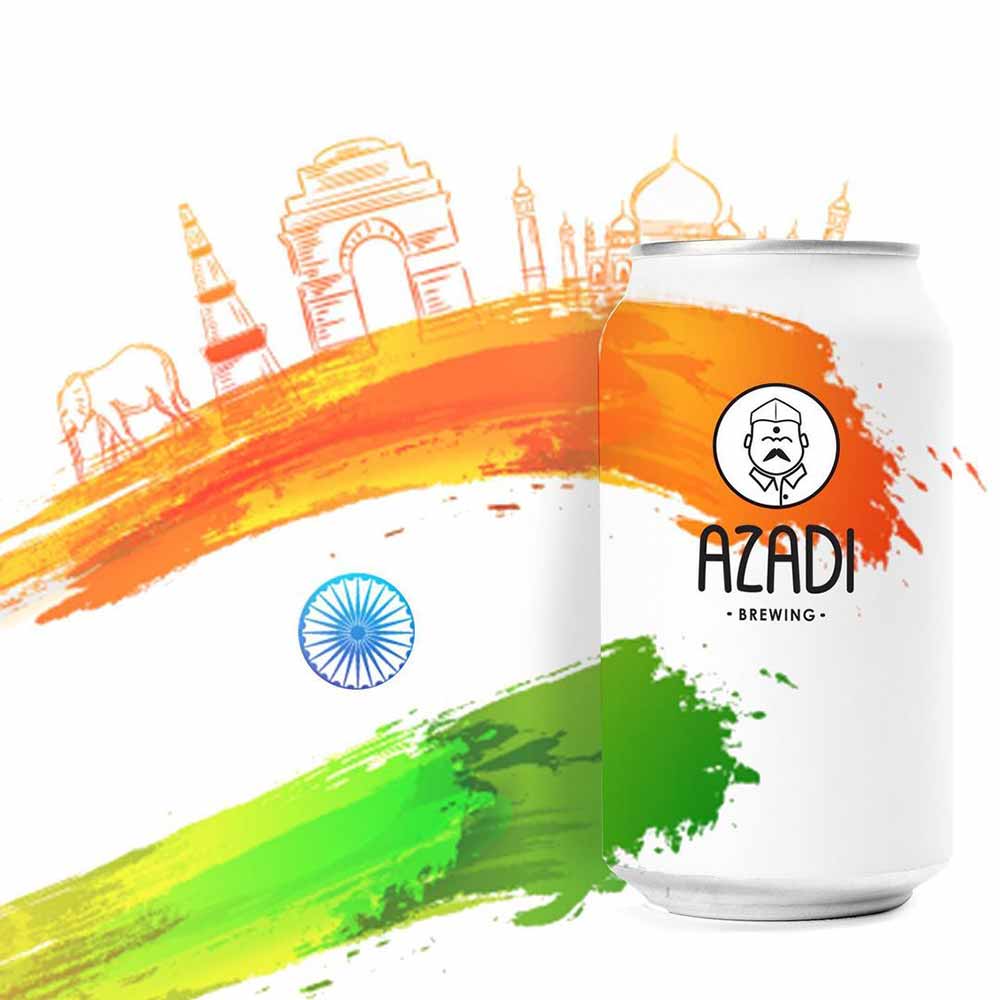
Photography courtesy of Azadi Brewing Company
Overall, this has been a contentious time in our country for Black, Brown, and Asian communities.
Last year, hate crimes against the Asian American and Pacific Islander community hit unprecedented levels, increasing 339 percent according to the Center for the Study of Hate and Extremism.
Meaning the challenges for minority and Asian-owned businesses along with minority drinkers has stayed high across all industries, especially in craft beer.
“With any minority you have to be quite thick skinned and resilient,” says Ruvani de Silva, a freelancer of Sri Lankan and British heritage with bylines in Good Beer Hunting, PorchDrinking, and Craft Beer Austin. De Silva has written extensively about the South Asian narrative in craft beer, especially for South Asian women, who can find an industry full of predominant white men even trickier to navigate.
“You can often get imposter syndrome because you’re forced to prove yourself and your knowledge more than people who are traditionally welcomed into those spaces,” says de Silva, who also started the South Asian Beer Club to serve as an online community for South Asians in the U.S., U.K., and beyond interested in craft beer.
The Challenges South Asian Women Face in Craft Beer
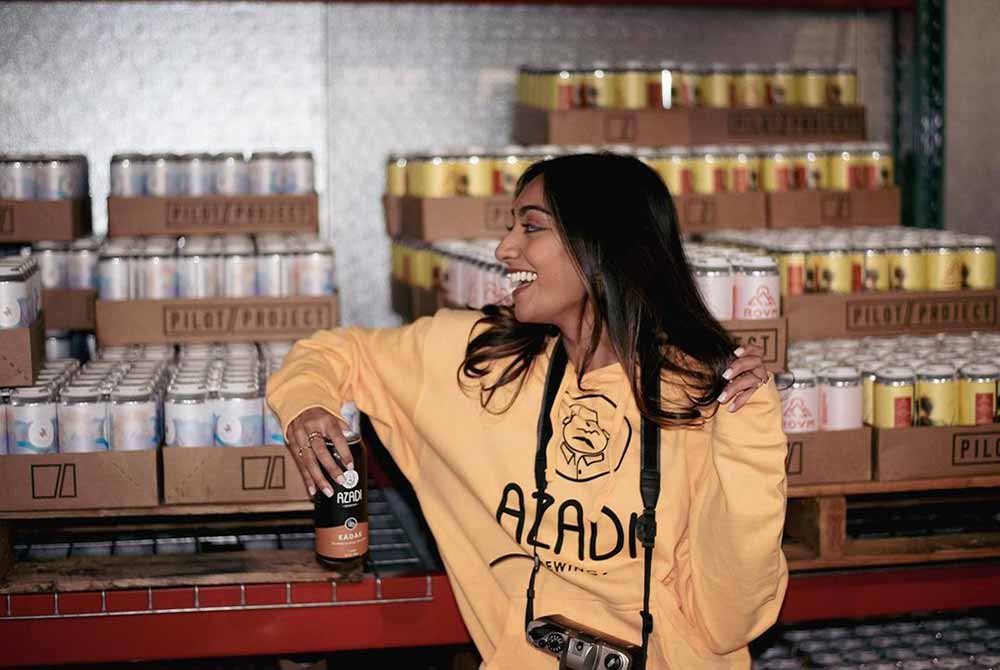
Photography courtesy of Azadi Brewing Company
The challenge South Asian women craft beer drinkers face is really two-fold. In addition to finding a way to feel accepted in North American craft beer communities many South Asian women also have to grapple with religious stigmas around women drinking in their own cultures.
“I don’t like to say too much in a generalized way because everyone’s experience is different…but traditionally in a lot of South Asian cultures women don’t drink and men don’t drink either,” says de Silva. “Crossing that as part of the Desi diaspora can be a big deal for people whose families are quite traditional in those cultures.”
People like Sarah Nadeem, who started the popular Instagram handle @hoppywonderwoman to catalog her love of craft beer. But coming from a Muslim Pakistani family means Nadeem isn’t able to openly drink beer around her own parents and relatives. “Out of respect I don’t drink in front of my family [because] it’s frowned upon,” says Nadeem. “It’s more of a religious thing than a culture thing, but it’s something I still have to hide.”
In fact, Nadeem says she still hasn’t found a Pakistani friend who drinks. “When I tell people I come from a Pakistani family with a Muslim background they’re surprised because that’s rare or odd,” says Nadeem. “You never see us openly drink beer out in public.”
Overall though, Nadeem has managed to cultivate her hobby. “In the beginning I got a couple stares,” says Nadeem. “But as the years progressed I don’t feel like I’m out of place.”
And for Nadeem seeing more South Asians slowly opening up breweries across the country has been a breath of fresh air. “It’s so nice to see Indians get into brewing,” says Nadeem. “It’s something you would have never even seen or heard about ten years ago.”
Still, it hasn’t been an easy journey for this small group of South Asian-owned breweries.
The Challenges of Opening a South Asian-Owned Brewery
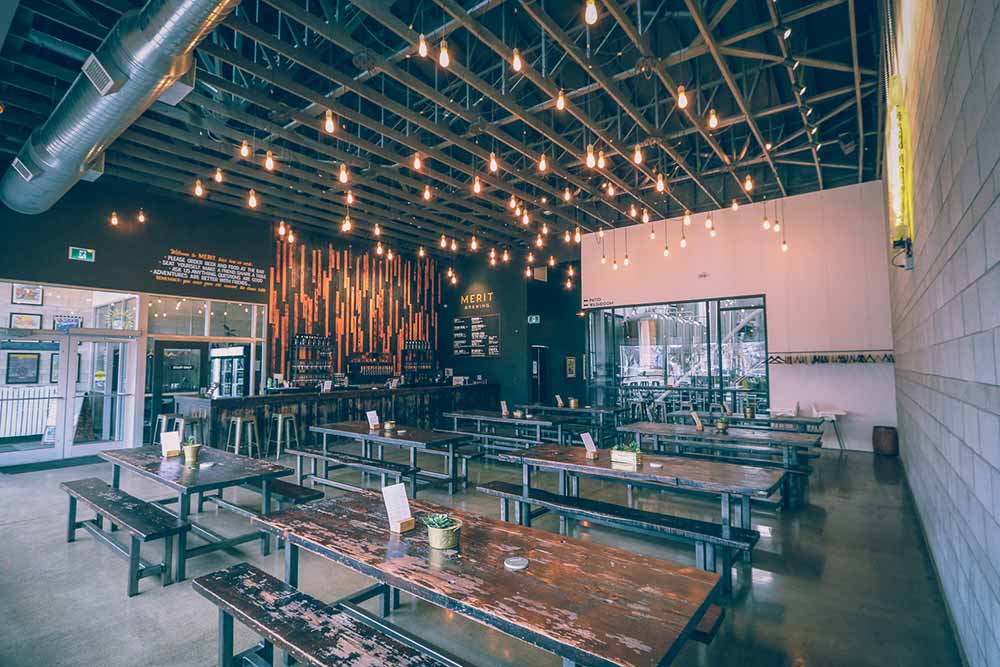
Photography courtesy of MERIT Brewing
This isn’t a new observation, but with close to 9,000 craft breweries in North America, South Asian-owned breweries in particular remain very low. A recent demographic audit of brewery owners performed by the Brewers Association reported that two percent of brewery owners are Asian without offering any further geographic breakdown of that statistic.
So while it’s hard to find specific numbers, from our own research we could only find five South Asian-owned breweries on the entire North American continent. If you do the quick math, that’s just 0.05 percent!
And for those South Asian brewery owners brave enough to carve out their own path in craft beer, the road can be a little rocky.
Make no mistake, opening a brewery for anyone is hard work. But for minority-owned breweries in the Latinx, Black, Queer, Native American, women, or Asian communities, the roadblocks can be particularly numerous, starting with finding the capital to fund a start-up business.
“So many talented brewers out there don’t have the capital to start; it’s incredible to think about all the ideas left on the table because they couldn’t get financing,” says Modi.
In November 2020, Modi and Schrand launched Azadi only after stumbling across Pilot Project, a brewery incubator in Chicago.
Started by Dan Abel and Jordan Radke in August 2019, Pilot Project offers businesses—especially minority-owned ones—access to the resources they need to build their company without the financial burden typically associated with opening a new brewery. Plus, the brewery incubator gives owners like Modi access to sales, marketing, and hospitality teams to help distribute the brand’s products in Illinois.
“It has been a blessing for a brewery like ours,” says Modi, who notes Pilot Project gave Azadi a safe space to bring innovative new beers to market.
But brewery incubators like Pilot Project are few and far between.
In Canada, Sandhu opened MERIT the good ol’ fashioned way. The business school graduate from the Degroote School of Business at McMaster University in Hamilton walked into a bank and asked for a loan. But for people of color, sourcing money from traditional institutions can be challenging.
“I can put on a shirt, tie, and blazer, and walk in with an impressive spreadsheet and have a great conversation about why this will make sense, but I knew that I would face that extra level of scrutiny,” says Sandhu. “I worked really damn hard to make sure that when I walked into the bank we weren’t walking away with a no.”
After almost three years of planning, MERIT Brewing opened on James Street in downtown Hamilton. Five years later the brewery has thrived. In part, Sandhu speculates, because he was so raw and honest with his story from the get go.
Sharing South Asian Culture Through Traditions

Photography courtesy of MERIT Brewing
It’s Sandhu’s history and heritage that beat at the heart of MERIT.
“We’re called MERIT because some people came over from another country and wanted to contribute and we’re going to honor that and we’re going to honor that through beer,” says Sandhu. That has been MERIT’s narrative right from the beginning.
And while that means not every beer gets a dose of Sandhu’s culture, it does play a major influence in a few. “At the end of day we want to tell a story, so it’s something we do every once and a while, usually as an honoring piece,” says Sandhu.
For instance, MERIT’s Unwritten Chai Milk Stout. On the surface the beer seems like an obvious nod to one of India’s iconic beverages. But the beer has a deeper story. The recipe actually came from the time Sandhu’s grandmother passed down the tradition of making chai to Sandhu’s wife. “She wanted to make that beer to honor my grandmother and the experience they had together,” says Sandhu.
Similarly, Azadi draws on Modi’s colorful culture to drive its business plan.
It starts right with the name. In the 1940s when Mahatma Gandhi and the freedom fighters emancipated India from British rule, they used the term azadi, literally translating to freedom in Hindi.
Today, creatives and artists have begun using the word azadi as a tagline. “People pushing boundaries of arts and music and all sorts of creative endeavors are embracing the concept of azadi that is freedom to craft,” says Modi. “That concept really resonated with us. Craft beer is amazing, we love it, but we can really push boundaries and expose craft beer to different things. We felt like we had the freedom to do that.”
Azadi pushes those boundaries by weaving the threads of Indian traditions into its beers.
For example, Japanese rice lager Doorsa takes its name from a type of ball thrown in cricket, the most popular sport in India. “It’s like a curveball in baseball, so this beer is a twist on a familiar concept,” says Modi, who substitutes regular rice with toasted basmati rice, the predominant rice in Indian cuisine.
It’s a move indicative of another trend in South Asian-owned breweries: leveraging Indian fruits, spices, and flavors to brew beers.
Sharing South Asian Culture Through Ingredients
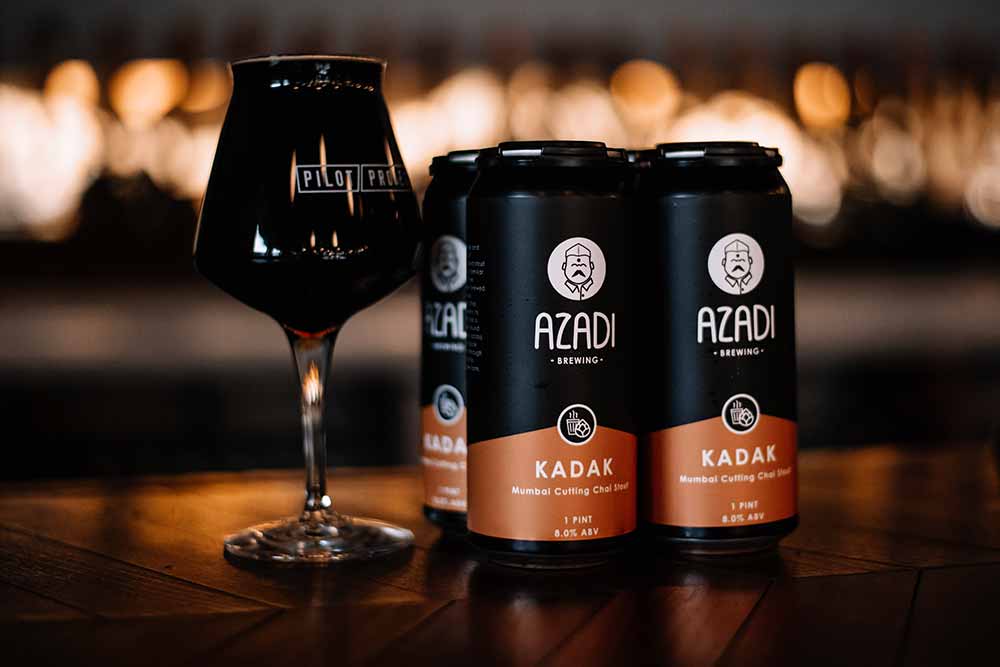
Photography courtesy of Rupa Mehta | @rupa.took.this
At Azadi every single beer incorporates a component of Indian cuisine. “Our tagline is Born in Chicago, Indian at heart, so everything we do has a little Indian bend to it,” says Modi.
For example, the aforementioned Kadak mimics the flavors of “cutting chai,” a reference to the size of the chai cup vendors sell. “They cut the quantity of the chai into small pieces so you can have a few throughout the day,” says Modi. “It’s like taking shots of chai. We tried to recreate the feeling in a dark, warm, full-bodied stout.”
Everything Azadi brews draws on some connection back to India, using as many Indian ingredients as possible.
Such as in Cochin, a lemongrass saison that uses lemongrass harvested in the Himalayas by farms that enable women to participate in the workforce.
Likewise, in the brewery’s most popular beer called Gir, which features the Kesar mango, a very vibrant orange saffron-colored fruit originating from Western India that is a staple for Indian families. “Every time people have that beer it reminds them of their mother’s cooking or being back in India in the summer,” says Modi.
It’s an important strategy that some South Asian craft beer fans such as Nadeem believe will attract more South Asian drinkers. “If we can add more South Asian ingredients in beer, that will draw more South Asians in,” says Nadeem. “Hopefully, as the years progress we’ll see more South Asian-themed beers. We just need more time to get more people out there.”
Beyond drawing more South Asians into craft beer, Azadi’s beers also educate Westerners around traditional Indian flavor profiles and dishes. “What’s really cool is that people who have never been to India have fallen in love with these beers,” says Modi. “They never would have experienced something like this at their local brewery. It’s been really fun to bring those things to life.”
And so far Azadi has caught fire at Pilot Project. According to Abel and Radke, when Azadi launched in November 2020, “They exploded overnight.” As one of the fastest-growing brands to ever participate in the incubator, Azadi’s first drop sold out within ten days.
“Azadi is a great example of a brewery going beyond,” says de Silva. “They’re not just saying these are the traditional flavors. They’re really pushing it.”
Alternatively, at MERIT not every beer gets a helping of heritage, but a few in particular have stood out. “It’s fun to use one of our influences in making a few different beers once in a while,” says Sandhu. “Chanan is the one that encapsulates that the most.”
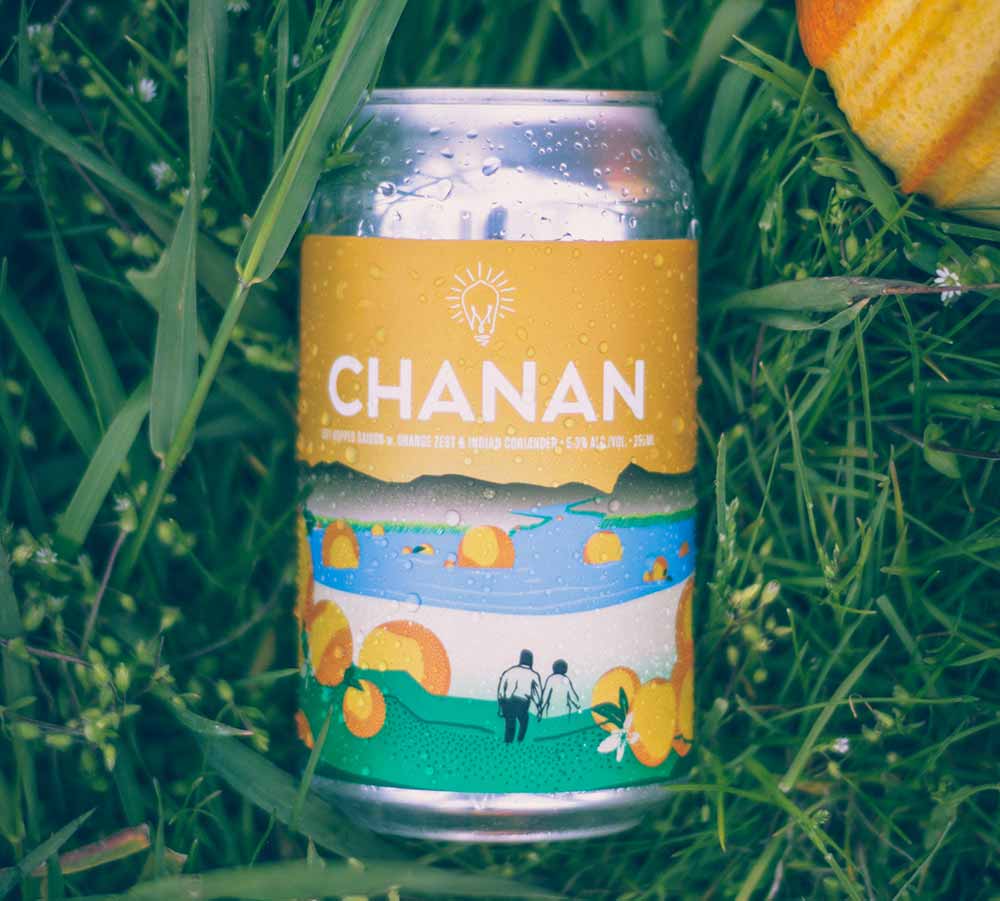
Photography courtesy of MERIT Brewing
Named after Sandhu’s grandfather, the saison was brewed to pair with the curries that Sandhu makes at home. “Curry is something that always feels homey to me, always grounds me,” says Sandhu. “If I’m having a bad day, I want to make curry. I wanted a beer that would match that experience of eating curry.”
Which meant incorporating coriander, a key spice in the dish. “It’s my favorite spice in the world,” says Sandhu. “I literally have a jar I open up every once in a while and just smell. It smells like Froot Loops —that brightness, citrus, and happiness you smell is amazing.”
Sandhu chose to brew a saison to pair with the coriander and curries’ assertive flavors. “A drier beer would help cut through the richer elements of a lot of curries we make,” says Sandhu. “In every way it was designed to specifically pair with curry. You can crack a can across a room and smell it, just like as soon as you start cooking curry you’ll smell it down the street.”
Much like cooking curry brings comfort to Sandhu, so does giving back to the community. A trait he no doubt learned right from his grandfather.
South Asian-Owned Breweries Giving Back to the Community
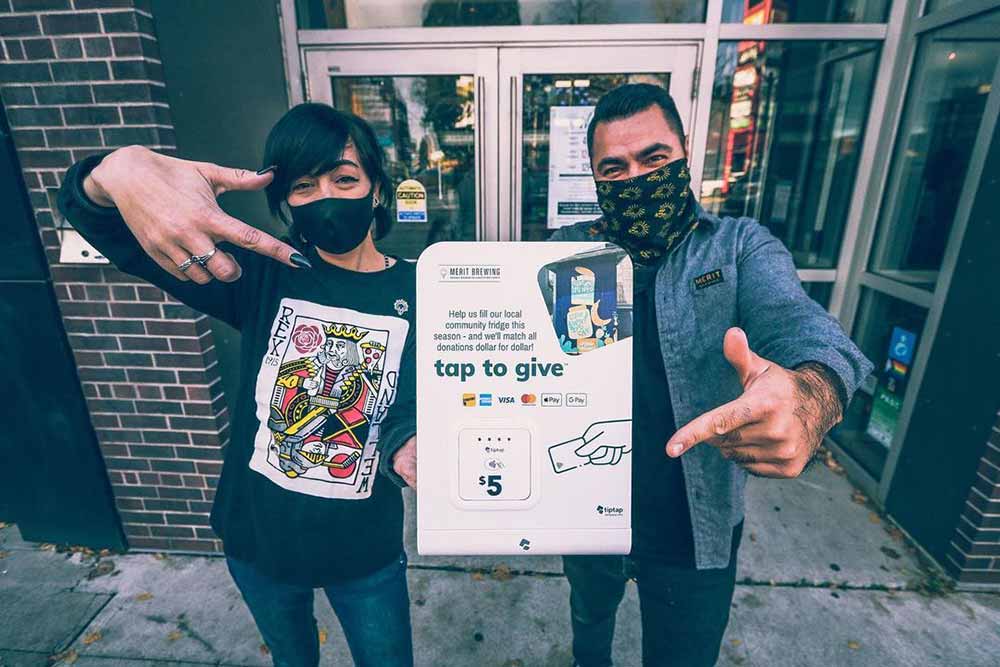
Photography courtesy of MERIT Brewing
Beyond brewing, both MERIT and Azadi directly give back to their respective communities.
Following in his grandfather’s footsteps, Sandhu has started many initiatives through MERIT that give back to the entire Hamilton community. For instance, three years ago Sandhu worked with a local organization called Empowerment Squared that helps newcomers navigate a fresh life in Canada. The company provides everything from after-school activities and mentors for kids to services for parents.
Creating a scholarship in his grandfather’s name, Sandhu provides financial assistance for Empowerment Squared mentors interested in a college or university education.
Additionally, MERIT started a community fridge in a property they bought a couple years ago to turn into a taproom. While it’s under construction the space serves as a place where anyone can come and donate food. “We’ll often drop off a couple hundred dollars worth of groceries and when we come back an hour later it will be gone,” says Sandhu. “It’s so wild.”
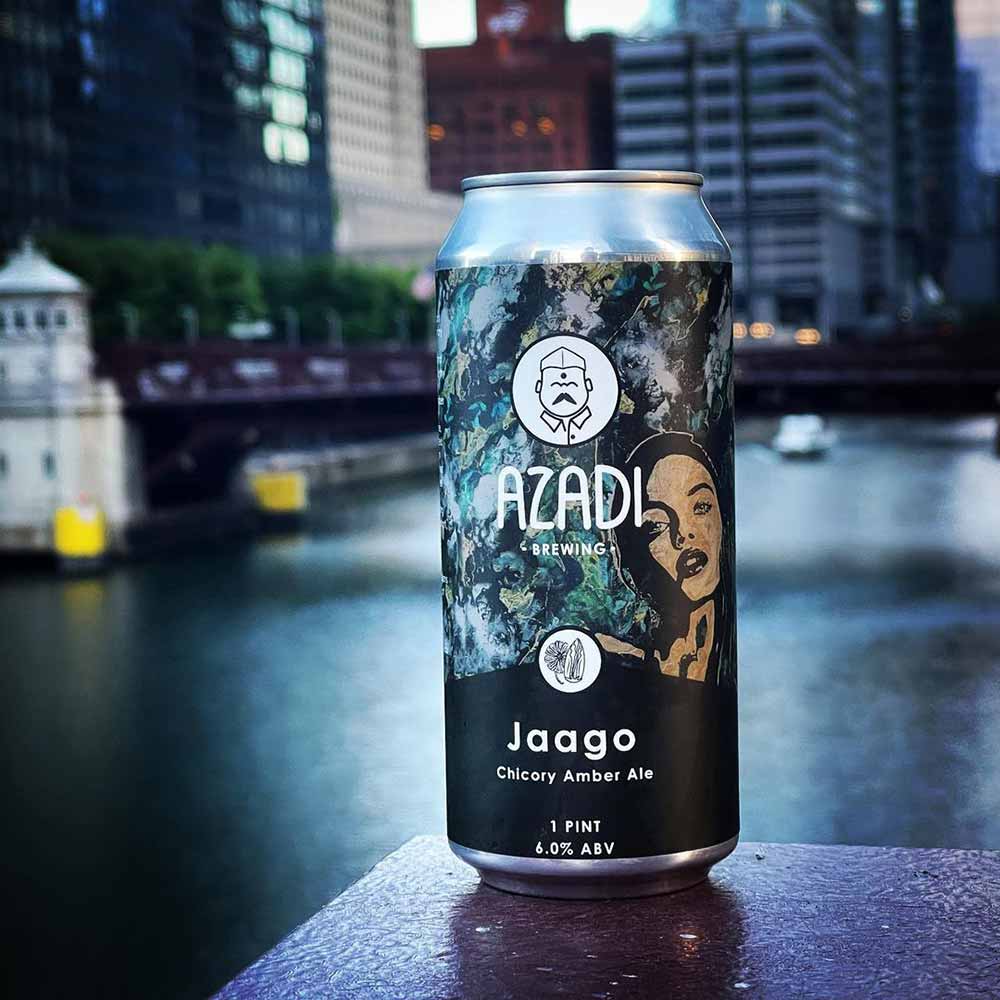
Photography courtesy of Azadi Brewing Company
In Chicago, Azadi strives to highlight and support creatives from South Asian backgrounds. They recently worked with muralist Jenny Vyas, whose illustrations often depict Indian women, featuring her artwork on one of their Jaago beer cans. Eventually, Modi hopes to start an entire series of beers showcasing different South Asian creatives in various fields.
It’s this sense of community that de Silva says is so crucial to including voices from cultures into craft beer. “It’s so important to build community and work with other people in our community and other minority groups in particular to make sure our spaces are welcoming for everyone,” says de Silva. “ We need to help educate people both from majority groups and other minorities about what our experience is like.”
How Can We Support South Asian Representation in Craft Beer?
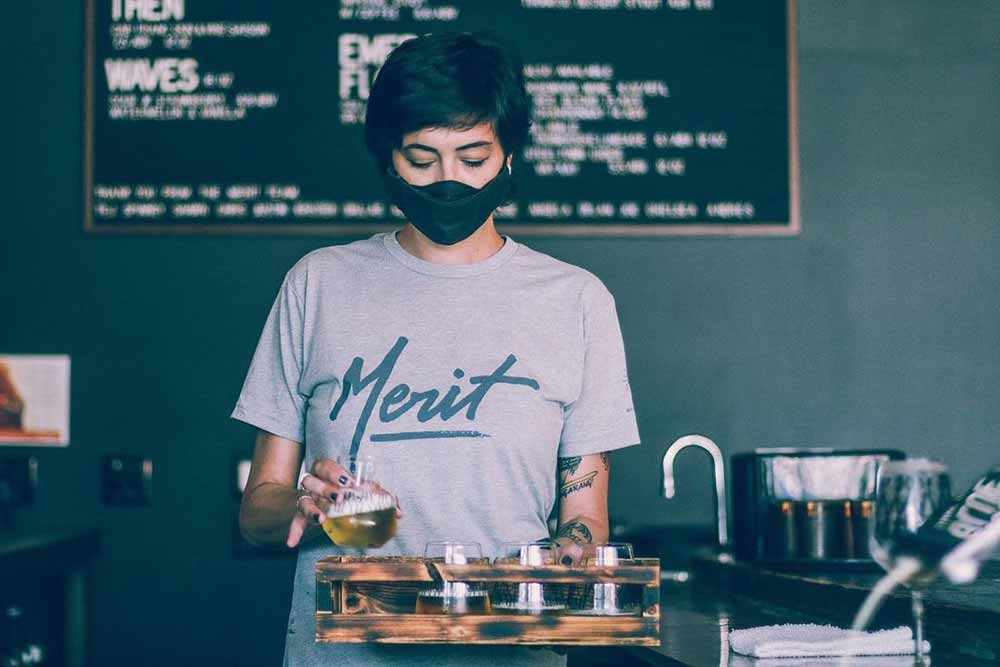
Photography courtesy of MERIT Brewing
According to Sandhu, one of the best places to start will be mentoring more brewery owners of color. “A lot of BIPOC people don’t have people who look like them, sound like them, talk like them, have experiences like them that they can go to for advice,” says Sandhu, who has high hopes that will change. “We’re still a small, small number, but we’re seeing more people from the BIPOC community getting involved, building their own business, and growing their careers and resumes.”
Similarly, Sandhu notes that one of the biggest things he can do as a member of one of those communities is to “be there for those other people that want to do the same thing, that are looking for guidance, that look around a room and don’t see people that look like them or talk like them.”
It’s that cross collaboration that de Silva emphasizes will be crucial to breaking down barriers in the industry. “I think it’s really crucial that we all make spaces as diverse as possible and welcoming to everyone,” says de Silva. “When you walk into a taproom and see someone who looks like you, whether it’s a woman, a Queer person, or a person of color, you immediately think I’m not going to get any shit here. I’m safe here. I’m fine. I don’t have to tense up and think about what might happen to me here.”
This isn’t an easy task. It requires a constant, dedicated effort. “There can be a flurry of interest around diversity and then the momentum is lost and people forget and revert back to business as usual,” says de Silva. “That’s why representation is so important, because if we keep infiltrating the industry then it becomes harder to say people like us don’t do that because, look, there are all these people who are doing that. It’s easier to change attitudes if you have faces and names to put to arguments.”
Faces and names like Modi and Sandhu, who remain hopeful about the future of the industry. “I’m seeing and meeting more people in these rooms from different communities,” says Sandhu. “I’m really hopeful that one of the most impactful things we can do is to continue to have voices like ours to give other people voices. The future is bright for people that don’t look like a traditional brewer.”
5 South Asian-Owned Breweries to Support in North America Right Now
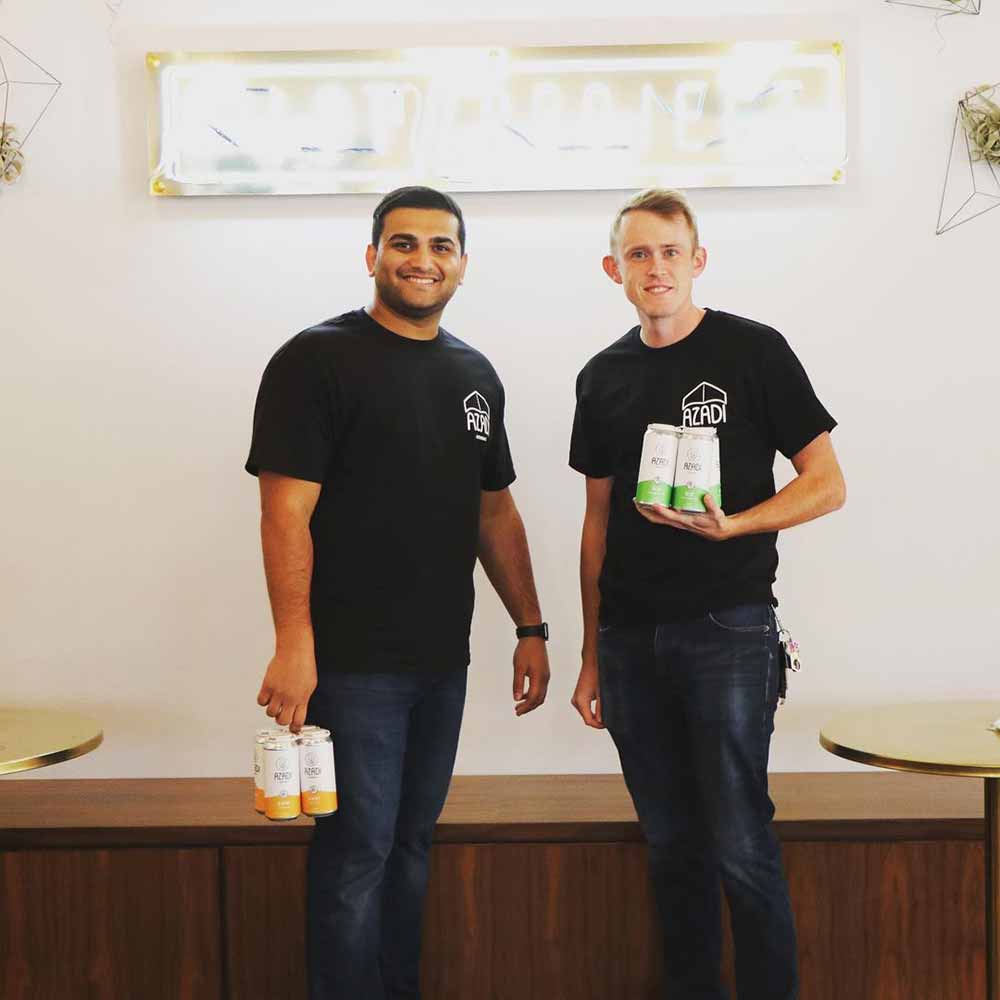
Photography courtesy of Azadi Brewing Company
We know this might not be a complete list, but here are five South Asian-owned breweries to support. If you know of others, please reach out to us at [email protected]!
1947 Craft Beer
Long Island City, NY
Azadi Brewing Company
Chicago, IL
MERIT Brewing
Hamilton, ON, Canada
Other Desi Beer Co.
Branford, CT
Windmills – Brewery. Restaurant. Music.
The Colony, TX

